KPN was established on 1 September 1979 on the basis of the Human and Citizen's Rights Defence Movement, as the first non-communist organization in the USSR-dependent states camp since the suppression of the PSL by Stanisław Mikołajczyk. The strategy was based on the political thought of Józef Piłsudski and the “Revolution Without Revolution” by Leszek Moczulski, historian, author Polish War, arguing with attempts of a better device of Poland under the protection of the USSR. Her postulates went the furthest of all opposition movements and among them was a complete break with Poland's dependence on the USSR and in its ranks the concept of the 3rd Republic was first used. For this reason, they were combated by the NRA and later Solidarity no little than the PZPR. The president of the IPN Janusz Kurtyka, described the creation of KPN by Moczulski as “throwing the challenge of Moscow” and the Soviets were able to request a proceeding with him. The leadership of KPN was given 2 trials, the first in the state of war, before a military court, despite the situation and harsh sentences carried out in ZK Barchevo known for serving a life conviction of imprisonment by Gauleiter Ericha Koch (now it is known that his insult to Solidarity was justified). The second in 1986 supervised by Andrzej Kryże (previously believed for the words that PRL was not an independent state), Roman's boy known for saying "Sądzi Kryże – there will be crosses" (Roman Kryże ruled, among others, in the second instance of the process of rtm. Pilecki's rtm and in the meat scandal) and later deputy minister at Ziobry, was brought after the arrest of the Political Council of KPN after it began openly. Previously, opponents of revealing themselves, with Romuald Sherevietev at the head, had broken up the Polish independency Party. It turns out that it is possible to proceed with a further trial before a general court, not a military court, applied by political order and with lower sentences.
 In the contract election, KPN rejected the proposal to join the OKP that could give 3 tickets, competed separately, putting 16 candidates to the Sejm and 6 to the playing legislature without obtaining any mandate (These mandates could have outweighed the election of General Jaruzelski as President). In the summertime and autumn, KPN organized protests against the candidacy of General Jaruzelski as President, under the bases of the russian Army and the business of Communist organization office attacked by service officers subordinate to the government of Tadeusz Mazowiecki. She entered Parliament after full free elections in 1991. The most crucial actions taken by her in the Sejm were the submission of a bill on restitution of independency [For comparison in Czechoslovakia under Vaclav Havl, the officials of the communist organization were banned from acting as public officials], a resolution declaring martial law illegal and an effort to bring General Jaruzelski to the Court of State. The law was intended to regulate the principles of review of legal acts, global agreements and case law, individual vetting and verification of officers. During the debate on this act, Moczulski was celebrated for the improvement of abbreviation of the PZPR, addressed to SLD MPs, as the “Payed traitors of Pachołka Russia” who, in a motion of protest, came to the joy of another MPs (finally postcommunists from the parliament brought Adrian Zandberg out in 2015). In the political sphere, the KPN advocated the president with a strong position, exercising authority over the Government, removing the Sejm from this task and in the field restoring local government. In the economy she sought interventionism, simplifications for Poles with the subsidiarity of abroad capital, centralization of the possession of the State Treasury by the Minister of National Economy of the Republic and control in the hands of the legislature Treasury Commission.
In the contract election, KPN rejected the proposal to join the OKP that could give 3 tickets, competed separately, putting 16 candidates to the Sejm and 6 to the playing legislature without obtaining any mandate (These mandates could have outweighed the election of General Jaruzelski as President). In the summertime and autumn, KPN organized protests against the candidacy of General Jaruzelski as President, under the bases of the russian Army and the business of Communist organization office attacked by service officers subordinate to the government of Tadeusz Mazowiecki. She entered Parliament after full free elections in 1991. The most crucial actions taken by her in the Sejm were the submission of a bill on restitution of independency [For comparison in Czechoslovakia under Vaclav Havl, the officials of the communist organization were banned from acting as public officials], a resolution declaring martial law illegal and an effort to bring General Jaruzelski to the Court of State. The law was intended to regulate the principles of review of legal acts, global agreements and case law, individual vetting and verification of officers. During the debate on this act, Moczulski was celebrated for the improvement of abbreviation of the PZPR, addressed to SLD MPs, as the “Payed traitors of Pachołka Russia” who, in a motion of protest, came to the joy of another MPs (finally postcommunists from the parliament brought Adrian Zandberg out in 2015). In the political sphere, the KPN advocated the president with a strong position, exercising authority over the Government, removing the Sejm from this task and in the field restoring local government. In the economy she sought interventionism, simplifications for Poles with the subsidiarity of abroad capital, centralization of the possession of the State Treasury by the Minister of National Economy of the Republic and control in the hands of the legislature Treasury Commission.
Moczulski's ambition to take over the MON, which was opposed by the troops supported by Wałęsa and the hostility towards the economical policy pursued by Leszek Balcerowicz, was a sub-conversion to the Olszewski government, to which KPN accused its continuation. Due to the economical policy of post-solidarity governments, KPN besides applied for a vote of distrust for the Minister of Property Transformation Janusz Lewandowski and expressed opposition to the Universal Privatization Programme consisting in distributing ownership of state enterprises among adult Poles in the form of universal certificates of participation.
Restitution of independency Act
The Act on the Restitution of independency defined how to account for the legal acquis. She has resisted and criticized especially due to the preamble, beginning and closing articles, justification and frequent references to laws before drafting them. It was to be carried out by reviewing legal acts and treaties concluded by the Polish People's Republic, breaking the statute of limitations, verification of officers carrying out certain professions, vetting and settlement of guilty persons by the general courts and specially appointed ultimate National Court. A review of the law and contracts was to be carried out by the Extraordinary Parliamentary Commission, specifically set up for that purpose, assessing for 77 weeks the content of legal acts in order to ask the Sejm to hold them, or to annul them in full or in part. The validity of the land was to be preserved by agricultural improvement and on the German lands.
All provisions to guarantee impunity for PRL officers were to become irrelevant. The statute of limitations on crimes committed by them was to be interrupted, and the most severe crimes (genocide, war crimes, and against humanity, and intentional crimes with fatal effect) were not to be statute of limitations. Judges, prosecutors, lawyers and civilian and military safety officers were to be verified. It was unacceptable to punish for belonging alone and the application of collective responsibility, although any authorities of the Polish People's Republic can easy be regarded as organised criminal groups (WRON, SB, or even RMB, since they were utilized to take children for their activities). The ultimate National Court was to be called in order to justice the most serious crimes (victims of the nation, betrayal of the state, surrender of territory and sovereignty, violation of the right to free elections, genocide and creation of the panic system). The material basis was to be chapters XVII (state crimes), XVIII (Crimes against the external interests of the State and global relations), XIX (Offences Against Associations of Public Law), XX (Fences Against Voting in Public Matters), XXI Offences Against Authorities and Offices), XXIII (Fences Against Justice), XXXV (Fences Against Life and Health) and XXXVI (Fences Against Freedom) of the 1932 Criminal Code and Chapters XIX (Crimes against basic political and economical interests), XXI (crimes against life and health), XXII (crimes against freedom), XXVI (Crimes against elections and referendum), XXVIII (crimes against freedom Conscience and Religion) and XXXIII (criminal crimes against the justice system) of the 1969 Criminal Code, so possible defendants could not claim to be tried against the existing rules. All activities carried out in this framework were not intended to impair legal trade and global position of the Polish Republic.
A review of the government introduced by the erstwhile government is worth introducing in the context of a democratic regulation of law, for example in order to halt legislative diarrhea and guarantee the quality of the law.
Draft Constitution
Article 1 of the draft constitution was copied straight from the April Constitution, to which the draft powerfully referred. The intent of the Republic was to coordinate citizens in cooperation for the common good. The power belonging to the general public was to be exercised through state and local government authorities. The task did not foresee direct democracy institutions. The catalogue of authorities is wider than that contained in the existing Constitution. The Sejm or its states were governed by the Government, the Treasury, State Administration, State Control, Guards, Armed Forces, Order Service and Universal Security. The compatibility of the acts with the Constitution was to be assessed by the Council of State, to which the Courts were not allowed. Like the March and April constitutions, the Roman-Catholic confession was to be the first of equal rights.
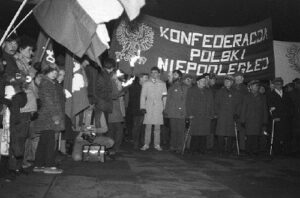 The economical strategy required owners to have it in accordance with the general good. Expropriation required a public or defence purpose, the power of the law and appropriate compensation. The confiscation was decided by the Court of First Instance. Article 15 of the draft regulation of the agricultural strategy was an enhanced equivalent of Article 23. the current Constitution by imposing an work to impose indeterminate marketing restrictions on agricultural land.
The economical strategy required owners to have it in accordance with the general good. Expropriation required a public or defence purpose, the power of the law and appropriate compensation. The confiscation was decided by the Court of First Instance. Article 15 of the draft regulation of the agricultural strategy was an enhanced equivalent of Article 23. the current Constitution by imposing an work to impose indeterminate marketing restrictions on agricultural land.
The tradition of the Pilsudczyk tradition shows the strong position of the President, the institution of his successor and the usage of historical names for the envisaged functions [The Chancellor alternatively of the Prime Minister, the Guardian of Rights alongside the RPO, president as Chief Chief, comput alternatively of conscription].
The draft constitution placed the president with broad powers, elected straight for a six-year term, in the composition of the Sejm next to the Chamber of Members and the Senate, like the kings of Poland before the partition. In contrast to pre-trial realities, he was to be his chairman. In relation to the legislature, he was to decide on sessions of the Sejm and its chambers, and besides held a legislative initiative. At the same time, he exercised authority over the executive power consisting of the Chancellor and the ministers before him. As part of the execution, he was to set the government's policies and the Chancellor coordinated the work of ministers within them. authoritative acts concerning the government were to be countersigned by the Marshal of the competent Chamber, concerning the execution of the Chancellor conducting the session of the Sejm in the absence of the president or the minister responsible, and the prerogatives were exercised in person. It was 1 of the prerogatives to indicate his candidate as President, a successor in the event of the office being emptied prior to the conclusion of the peace, signing or vetoing laws, appointing elected officials, determining the Government's organization and the state of armed forces called the compute. He was besides to be the Chief Commander of the Armed Forces, exercising authority through the Minister of National Defence, and professional matters entrusting the General Inspector of the Armed Forces (at peace level)/Chief Commander of the Armed Forces (at wartime) with the tradition of RON erstwhile kings commanded the army in the field and II of the Republic of Poland, while Piłsudski besides exercised civilian and military power. Should the office be emptied, the authority would be taken over by his appointed successor, in the event of his failure to appoint the legislature marshal, further by the talker of the Chamber of Members, Chancellor, Ministers and Senators according to his appointed seniority. He was to be accountable to the Constitutional Court for violations of the Constitution or criminal offences. The institution of the successor is based on the April constitution, which results from the references of KPN to the tradition of the Pilsudczyk and earlier forms of Polish statehood, and the rejection of parliamentary democracy, the PRL strategy and the modifications of the democratizing it.
The draft was most distinct from the another projects authorised for examination by the Constitutional Commission, and a tiny constitution 1992. It predicted the submission of the Government to the president of broad prerogatives and work to him and to the Senate. The government was to consist of 7 ministers with a constitutionally assigned competence with the Chancellor of the Republic, appointed by the president and leading the execution on his behalf, as the First Minister (On the French Prayer, a akin hierarchy envisaged the presidential project) and at the same time the Minister of Justice at the head. These were the Minister of the Interior, Minister of National Defence, Minister of Education, discipline and Culture, Minister of National Economy, Minister of Social Affairs and Minister of abroad Affairs. Mission of the Minister of National Defencethere was to be a proposal for a law governing the rules of military service. Their precise mention and determination of competences was comparable to the Constitution of the Duchy of Warsaw and the Decree on the organisation of ministers. The hierarchy of consequences in the event of the Chancellor's incompetence was the same as taking over duties after the President, excluding his appointed successor and the Marshals of the Sejm and the Senate. The government's tasks and ancillary bodies not constitutionally regulated were to specify the president by his decree. Ministers exofficio They sat in the legislature excluded from taking part in the work of his committee and subcommittee. They were to comply with the resolution of the Sejm, at the request of 1 of its chambers, before the Constitutional Court.
The Sejm was expected to be the ultimate state power, but, like the April Constitution, he placed the president above the remainder of the execution, The president was the talker of the Sejm and, through him and the Chancellor, exercised authority over the Government. Ministers with Chancellor at the head of number 7 and voivodes to be 12, ex officio They sat in the legislature together with 105 chestnuts which were elected straight (KPN in programme programs assumed a simplification of parliament). The legislature was to exercise parliamentary and political control over the Government. The parliamentary Chamber of 444 Members was deprived of this and its powers limited to government in which the powers of the legislature were reduced to the consent of the president to ratify the global agreement. Granting discharge to the government, passing the bill of cardinal laws listed in the draft (precise the cardinal's rights and the state's system; regulating the budget, conscription to the military; contributed by the president or 1/3 of the sum of Members and Senators) or bringing charges before the Constitutional Tribunal appointed by the Council of State required the approval of the combined states of the Sejm. The Kashtelans were forbidden to take a occupation another than in the free trade. Members had no operating restrictions unless they required public funds. The Chamber of Members may have granted approval to do so if it was not contrary to good manners. The planned legislative model diverged most from the projects presented in the remaining projects, which did not foretell senators of the public.
 The KPN task assigned the courts the task of administering justice. The supervision of the judiciary and the holding of elections was to be exercised by the Council of State modelled on the French Constitutional Court and the State Election Commission. The courts were divided into ultimate Courts divided into Chambers and Administrative Courts, Universal Courts [Appellate, territory and Grodzkie], Competency Courts and peculiar Courts, including military courts. The judges were to be appointed by the president at the request of the First president of the ultimate Court, and the courts were to be appointed at the request of the Chancellor. The transfer as a consequence of organisational changes, as in the citizens' project, is excluded from its inadequacy. As a control body, the ultimate Chamber of Control, whose president responds as ministers, to the Senate, was retained. Next to it there are the president of the Law and National Heritage Guards. In addition to these, the Ombudsman is foreseen. Their operation was to be governed by laws.
The KPN task assigned the courts the task of administering justice. The supervision of the judiciary and the holding of elections was to be exercised by the Council of State modelled on the French Constitutional Court and the State Election Commission. The courts were divided into ultimate Courts divided into Chambers and Administrative Courts, Universal Courts [Appellate, territory and Grodzkie], Competency Courts and peculiar Courts, including military courts. The judges were to be appointed by the president at the request of the First president of the ultimate Court, and the courts were to be appointed at the request of the Chancellor. The transfer as a consequence of organisational changes, as in the citizens' project, is excluded from its inadequacy. As a control body, the ultimate Chamber of Control, whose president responds as ministers, to the Senate, was retained. Next to it there are the president of the Law and National Heritage Guards. In addition to these, the Ombudsman is foreseen. Their operation was to be governed by laws.
The draft constitution developed by KPN was an effort to adapt the April Constitution, which was the last pre-war fundamental law and a symbol of the continuity of the Polish authorities on emigration to the democratic system. In relation to the sanctimonious prototype, it introduces direct election and constitutional work of the president and democratizes the choice of the governing bodies. Despite the greater casusistism governing, among others, all levels of administrative division, it is smaller than the existing constitution. It is worth introducing a kapuistic listing of ministers and a division of their tasks to prevent the addition of further, specified as the Minister of Sport, the Minister of civilian Society or the Minister of Equality. task defects were creating translator in administrative division, making gminas and voivodships units of local government (voivods were to run at the same time self-government and represent the Government in the field – after the election by the Sejm they were to be appointed by the Prime Minister), and powiats were to be appointed by the level of government administration (provisionally KPN submitted a task for the introduction of local government for the past 49 voivodships). In addition, he doubled the tasks of the president of NIK, the Law defender and the RPO.
The stolen flag
large defeat can be the beginning of large success, and large success can be the origin of large defeat. 1 specified situation was the fall in the 1993 election of the majority of the right side of the parliament. Time outside of him served to close ranks, make a legend of “night shift”, make its own draft constitution and return to power. The majority of the right-wing non-seism grouped in the run Solidarity, and the smaller part in the Polish Reconstruction Movement. To this day, there is the "strengthening by division" and the leadership on the Polish right to lose advantage, although this besides occurs on the left. KPN, together with the UD, seeking to dismiss Olszewski's government, despite the decline in support remaining in the parliament, began gradually to fall apart, with the forceful takeover of premises by individual factions inclusive, and in 1997 any politicians after the second split, led by Adam Słomka present known from the legion to break through the forests to save Lviv and not withdrawn from the AWS, took off from her letter.
Olszewski's government was 1 of the worst combined governments of the 3rd Republic of Poland. On 5 key ministries 3 were filled by ministers outside the government coalition or in a way that prevented its smooth operation. Despite the criticism of Balcerowicz's policy, the Minister of Finance was Andrzej Olechowski from his composition educated in the SGPiS (if Balcerowicz's policy was bad, then the deficiency of an MF candidate in the PC and ZChN ranks proves their staff weakness. If this policy was right and there was no alternative, verbal cutting off from it was nonsense – supporters displeased and opponents did not convince anyway). The MFA maintained Krzysztof Skubiszewski de facto representing Belvedere in the government. The most disputed was the MON which Leszek Moczulski requested and after opposition from the generals to his candidacy, Jan Parys, who besides conflicted with the General and Walesa. The only key ministers from the ruling parties were Zbigniew Dyka and Antoni Macierewicz. The first was celebrated for his effort to review the judgement of the court on the Polaniecki crime in which he was a defender, and the defendants received death punishment and were late for voting on a vote of distrust for Hanna Suchock's government. Macierewicz, in implementing a mirror resolution initiated by JKM, placed on the list of Moczulski and Chrzanowski, placed against the government of KPN and his own ZChN. Prof. Antoni Dudek, as his only advantage, cites the articulation of the pursuit of integration with NATO and the EEC, although ZChN voted against the association agreement with the latter. If there were a NATO accession referendum in 1999, it would not be essential to extend it for 2 days as EU, in order to draw the essential attendance (there were no Anglo-Saxon crimes committed against Poles in history).
The government of Hanna Suchocka, being the "POKonfederation 0,5" (a coalition of UD, ZChN, respective smaller parties and ministers recommended by the president – the PC did not accede to it for ambitious reasons) duplicated these disadvantages. It was not accidental for JKM to say about him that he "slaughters stupid" and any accountant thus conducting the company's finances would be convicted. The only difference between him and the erstwhile 1 was the Prime Minister's position. Olszewski justified the instability of the government author The structure of the Suchocka government was determined by the management of the UD, ZChN and Belveder. Both fell not due to post-community, but by voices from another post-solidarities parties. The only advantage of its collapse is the introduction of a constructive vote of distrust of German prayer into the existing constitution, preventing the withdrawal of the government without proposing a fresh Prime Minister, in order to avoid a government without political work or deficiency of political responsibility.
The introduction of the citizen's initiative to the draft constitution alongside the president and 56 parliamentarians was a motion of good willingness of the constitutional coalition towards forces that did not enter the Second Parliament. The only task submitted in this way was little different from the existing constitution than the 1 previously submitted by the MPs, let alone the UPR project, which was not accepted due to deficiency of signatures (Parliamentarians were afraid to sign a task depriving most of them of their mandates. The parliament was to number 120 MPs and the legislature to 49 senators). The constitutional dispute was brought to the preamble and appeal to God. Its creators sought to align it with a task developed by KK ZN and simultaneously submit both to a referendum.
The Citizens' task provided for primal principles akin to the existing Constitution. He described the Republic as a democratic regulation of law, the common good of citizens to pass it on from generation to generation. The superior authority was besides to be exercised by the nation through representatives elected to the Sejm and Senate, the universally elected President, Government accountable to the Sejm and independent courts. The forms of direct democracy already defined in the primaries rules were a referendum and a citizens' legislative initiative. Property was to be limited only by the rights of others. The basis for expropriation or regulation of its usage was to be solely a common good, in accordance with the procedure provided for by the Act and for fair compensation. The State was to receive the work to aid the unemployed to find work and to defend working conditions. With the trade unions, the trilateral committee was to operate. The state was to cooperate with the churches and spiritual unions recognized by them.
According to the tradition of "Solidarity", it follows the preamble to the pathos referring to historical narratives, concluded with the "In the Name of God" and a wide scope of social guarantees in systemic principles. These included the participation of the professional self-government in the management of the workplace, support for families' economical policies including taxation policy, financial assistance for the unemployed, the right to collective labour agreements negotiated by trade unions, setting a minimum wage by the tripartite committee of employers, workers and the Government, presently existing at the statutory level. In relation to the existing constitution, he supplemented the President's powers to harmonise the actions of the primaries of the state authorities to stabilise his work and functioning in the adopted constitution in the residual scope in the form of signing, or vetoing or directing the law to measure compliance with the constitution. He besides assumed another composition of the Court before which the president was accountable.
The civic draft constitution established a dualist execution in the form of president and Government. The Prime Minister representing the Government was to be appointed by the president and was to request the appointment of individual ministers. The government so appointed held a presumption of competence in all issues of state policy not reserved for another bodies and was accountable to the president and the Sejm simultaneously. He was to resign to the president after a session of the Sejm constituting a fresh word of office, resigning, not granting a vote of assurance by the Sejm or giving a vote of distrust by the Sejm. Compared to the current Constitution, the drafter strengthened the position and responsibilities of the Prime Minister. Ministers did not have the right to sit on the boards of companies with the participation of the Treasury, to conduct subsidised activities or to receive government property benefits. For this reason, they were required to make property declarations erstwhile they sat on and resigned. Constitutional work was borne before the ultimate Court. The Court of State in the expression described in the preceding paragraph was reserved exclusively for the President, due to his appointment of SN judges. Its premise unforeseen in another constitutions and their designs was to violate its own promises and declarations.
The citizens' task lists the authorities in the general principles. These are straight elected Parliaments of 444 Members, legislature containing 100 senators, President, Government accountable to the Sejm and independent courts. At least two-thirds of the Members of the Sejm had to be elected in majority ordination with a vote in the second circular if in the first, no candidate reached the absolute majority as in France. It was prohibited to combine the parliamentary mandate with the function of the Ombudsman, the president of NIK, the president of NBP, the ambassador, the voivods, the judge, others defined by the law, sitting on the boards of state-owned companies or conducting business with funds from public finances. As a rule, incompatibility was excluded by ministers, secretaries and undersecretaries of state. The qualified form of government was to be constitutional laws requiring an absolute majority of votes of at least half of the Sejm and the Senate. They were to regulate electoral ordination, elements of direct democracy, the organisation of circumstantial bodies and emergency states. In France, organic laws require an absolute majority of votes and the Constitutional Council to declare compliance with the Constitution. They shall apply to the budget and financial laws.
Justice has only been defined as independent courts. The judiciary was to be divided into common courts, the ultimate Court and the ultimate Administrative Court. The only basis for the transfer of the justice was the organizational changes. The appointing judges of the KRS were to be governed by the Act. The Court without an adjective or addition in its name, composed of the First president of the ultimate Court and 6 members appointed by the legislature from its composition, was a "court for the President" in the event of being held constitutional or criminally liable. The ultimate Court was to service in this capacity toward another officials. The creation of 2 bodies acting as Court of State, the creators motivated the appointment of SN judges by the President. In military service regulations, the task provided for double disciplinary work for soldiers, under military and honorary courts. The supervisory bodies are the ultimate Audit Chamber and the Ombudsman existing in the existing Constitution.
The provisions of the civilian task worth applying are greater control of the property position of public officials, the introduction of constitutional laws known from France and Spain requiring a qualified majority and constitutional work for violating their own promises and declarations.
It was modeled by later drafts of the Constitution of the Law and Justice, which took over the electorate and place in politics after the AWS being the only organization in the III Republic that fell out of the government outside the Sejm. The preambles to both projects were written in a speech of Christian axiology and pro-state axiology, modelled on the April Constitution, different from the compromise of the existing constitution, trying to reconcile Christianity with liberalism and social democracy. The stated nonsubjective of the task was to break with the Polish People's Republic, for which the adopted solutions influenced the 3rd Republic, combining with earlier traditions in this independence.
Both projects put the president above all montesque tri division authorities. Outside the President, the authorities are the same as in the existing Constitution. cognition of the criminal activities of the institutions of the Polish People's Republic of Poland is an authority not mentioned in any another project. The first task limited the President's re-election to a word immediately after the incumbent, which is not in the second. Both require a presidential candidate to collect 300,000 signatures, or 100,000 signatures of support from citizens and 300 signatures from elected bodies. In the event of the president being emptied, his duties shall be assumed by the Marshal of the legislature – as in the April Constitution in the event of failure to appoint a successor. The president may convene meetings of the Council of Ministers, which he leads without taking part in the votes. In both projects, the president was to be given the right to refuse to appoint a minister or Prime Minister of the Council of Ministers if legal or national safety reasons were against this (Solution that could prevent the majority of parliament from effectively taking over the government).
The parliament was to be reduced by 100 MPs without circumstantial electoral ordination and the legislature elected by majority, by 70 members, but with the addition of the erstwhile Presidents of Poland elected straight (measured at General Jaruzelski elected by the National Assembly). The first task tightened the demands of moving for senator. Polish citizens at least 35 years of age, who sat on the elected or executive body for at least 5 years, had to stay there. The second draft imposed a ban on parliamentarians from carrying out economical activities with taxpayers' money and accepting honours another than war decorations. In principle, the incompatibility of the mandate was to be excluded by ministers and state secretaries. The legislature received part of the powers to appoint members of constitutional bodies.
Both projects provided for an increase of the Constitutional Court to 18 judges appointed in succession by the President, the Sejm and the Senate. The Court of State was to be composed of the First president of the ultimate Court as president and after 6 members appointed by the Sejm and the legislature outside its compositions. The composition and functioning of the National Judicial Board/Judgement Board, as compared to the existing Constitution, have been detailed. Members appointed by the Minister of Justice must have at least 10 years' experience of judgement in appeal courts. The president of the NIK was to be appointed by the Senate, whose position in relation to the Sejm both projects strengthened. The first draft provided for the establishment of an Office for the Relief of Victims of Lawlessness, replaced by a second Ombudsman. In the first project, the name KRRiT is changed to the Office for Broadcasting and Television, and in the second to the Office for Electronic Media. Furthermore, the Institute of National Memory was to become a constitutional body, in order to prevent its dissolution by the government with different views (replacing the Institute of thought with the National Institute of Political thought and placing prof. Adam Leszczyński at its head proves that it is possible to take over all institution and transform it in contrast to the intentions of the creators). In the second project, there is an extended regulation on delegation to an global institution.
Both projects include the Council of Defence of the Republic as a collegiate body coordinating the activities of defence authorities. Under the leadership of the President, it was to consist of Marshals of Chambers of Parliament, the Prime Minister, the Minister of abroad Affairs, the Minister of National Defence, the Minister of the Interior and the Minister of the Treasury. It is besides known from pre-war Poland, the draft constitution of KPN and postulated by Lech Walesa, the General Inspector of the Armed Forces becoming the Chief Chief of War. The Constitution was to be amended, or amended in a constitutional law procedure requiring a majority of two-thirds of the members of both chambers.
The essence of the PiS projects was the introduction of transitional and final rules on the settlement of PRL. Both projects require fresh vows by officials making them in pre-1990 formulas qualifying for them and removal from ineligible functions, due to their activities for the PRL, the cessation of the current word of office and the prohibition of standing for a mirror lie. The first besides provided for the establishment of a Committee on fact and Justice with powers of inquiry. Even in the draft of KPN, decommunization, mirroring and settlement with the PRL were not regulated, placing them at the level of the Cardinal's Act, for which the PC voted against at first reading.
It is worth introducing solutions to reduce the referendum's validity threshold to 30% of turnouts (the mandatory 50% threshold makes the referendum a fiction that is besides easy to boycott – if elections had specified a threshold, half of the parliament's word of office would be invalid), tighten up the parliamentarians' paid work and strengthen the Senate.
Lenin said cinema is the most crucial of the plays. In the reality of the III Polish Republic, the impact of applicable films and programs did not bypass documents. Jacek Kurski by spinning “Night Change” made the Olszewski government sovereigns seeking to settle the PRL. The KPN's vote against the government has found no understanding. Maciej Gawlikowski's “Under the Current” dedicated to KPN later showed the same government as badly working, reminding that the main advisor of Macerewicz was Ubek Andrzej Anklewicz. A akin function was performed by “Common General” and “Common General Gos to War” by Grzegorz Braun about Wojciech Jaruzelski showing besides non-criminal actions and in front of the TS (fixing folk power, reporting to Military Information). Thanks to them, a fresh Polish school of the paper was created, consisting of a combination of strong images, suggestive music and comments of duly selected experts in order to get the appropriate message, equal to the ground in which it is aimed.
The essence of the problem of political instability in the 3rd Republic and conflicts on its right is the discrepancy in the causes of specified a condition. The efforts of the chief leaders of the main forces led to divisions of the Polish People's Republic, especially Olszewski and Moczulski (the impact on the leader led to the collapse of both forces); the weakness of the staff of political parties and the full post-solidarity camp, which, by fighting each other, allowed the SLD to gain power and the illness of the age of kid converting the Polish People's Republic into III. In 1989, the only force with experience in exercising power was the PZPR and its coalitions, but under conditions that ended. There were only 2 ministers in the Mazowiecki government who had experience in education abroad (Balcerowicz and Skubiszewski), the remainder of the people had her naive image of films passed by censorship (the most liberal in the full socialist camp, and it was hard to slander fresh allies, which besides confirmed complexes towards them). Recovery of sovereignty after 1989 was no little hard than after the partitions and reconstruction after the Second WW (although the Second Polish Republic and the Polish People's Republic connected more than it shared), not for material reasons, but for intellectual reasons, but their combination and the biggest obstacle on the way of each one, is simply a subject for another article.
Jeremi Cierzniakowski

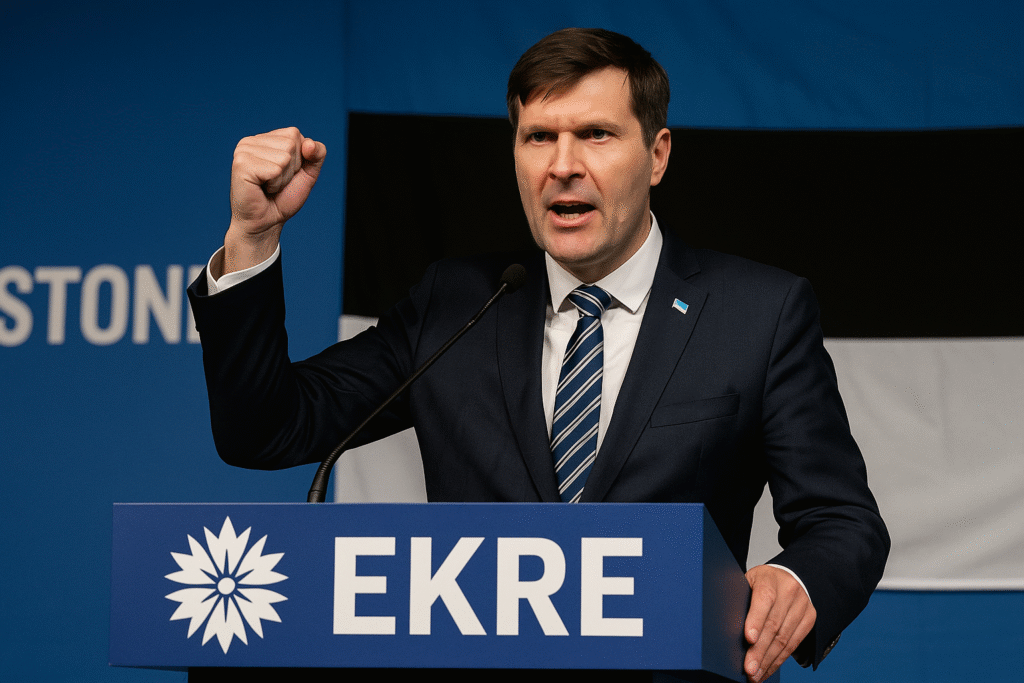




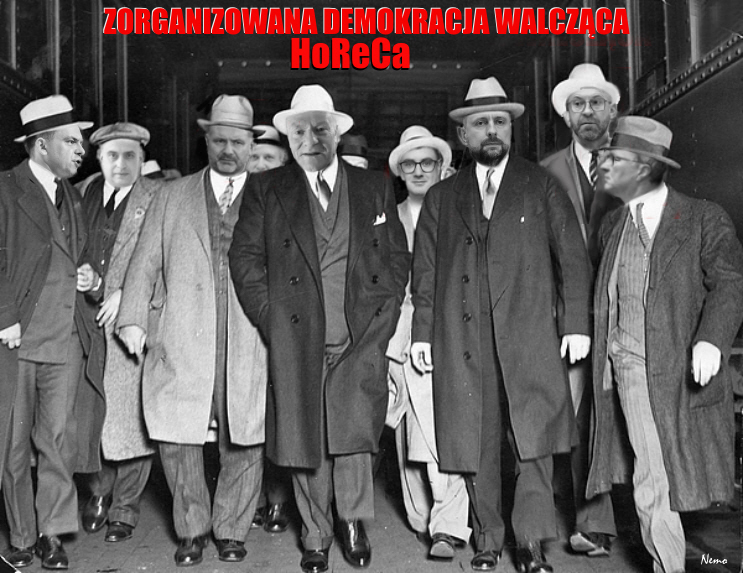
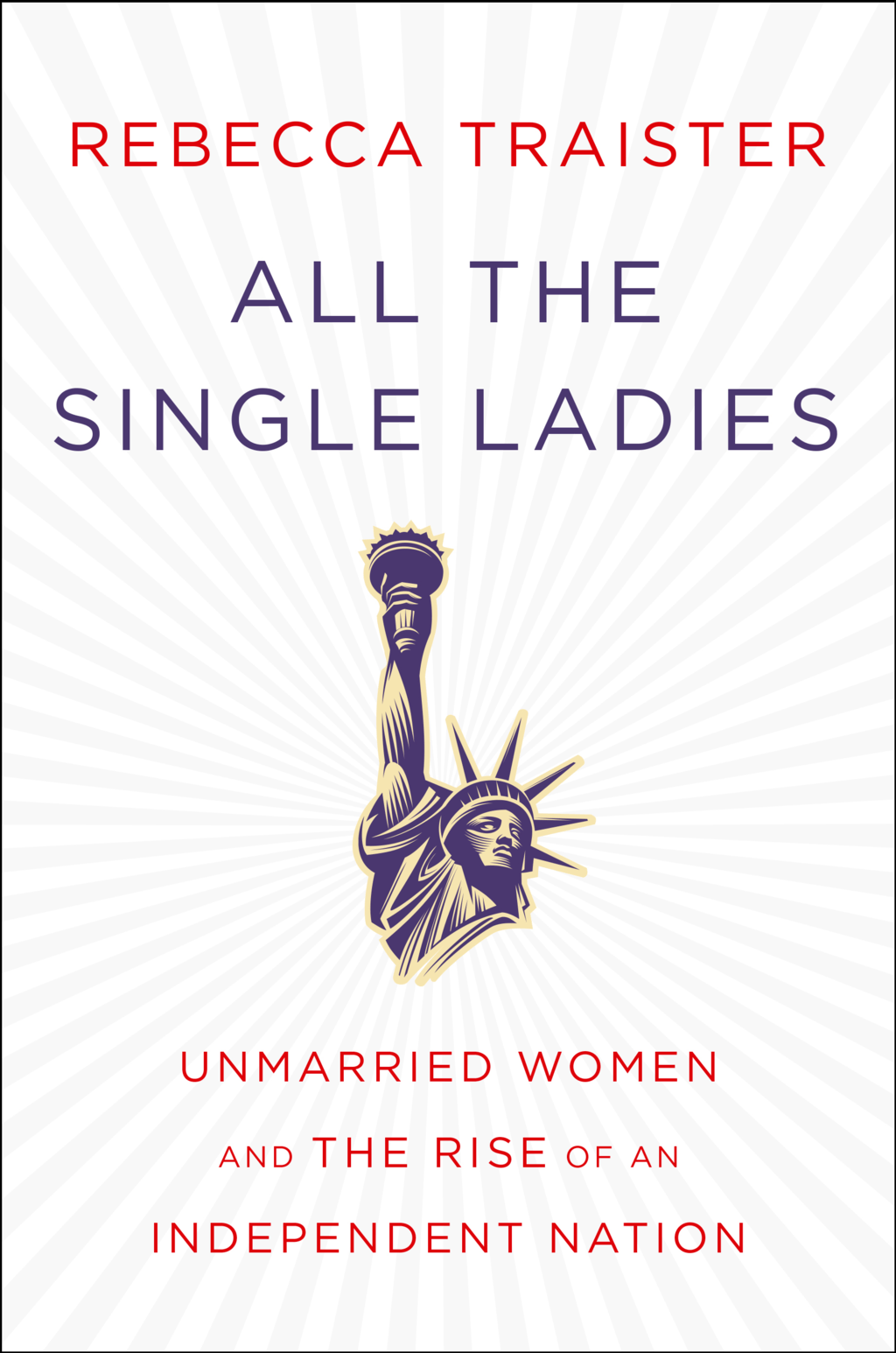
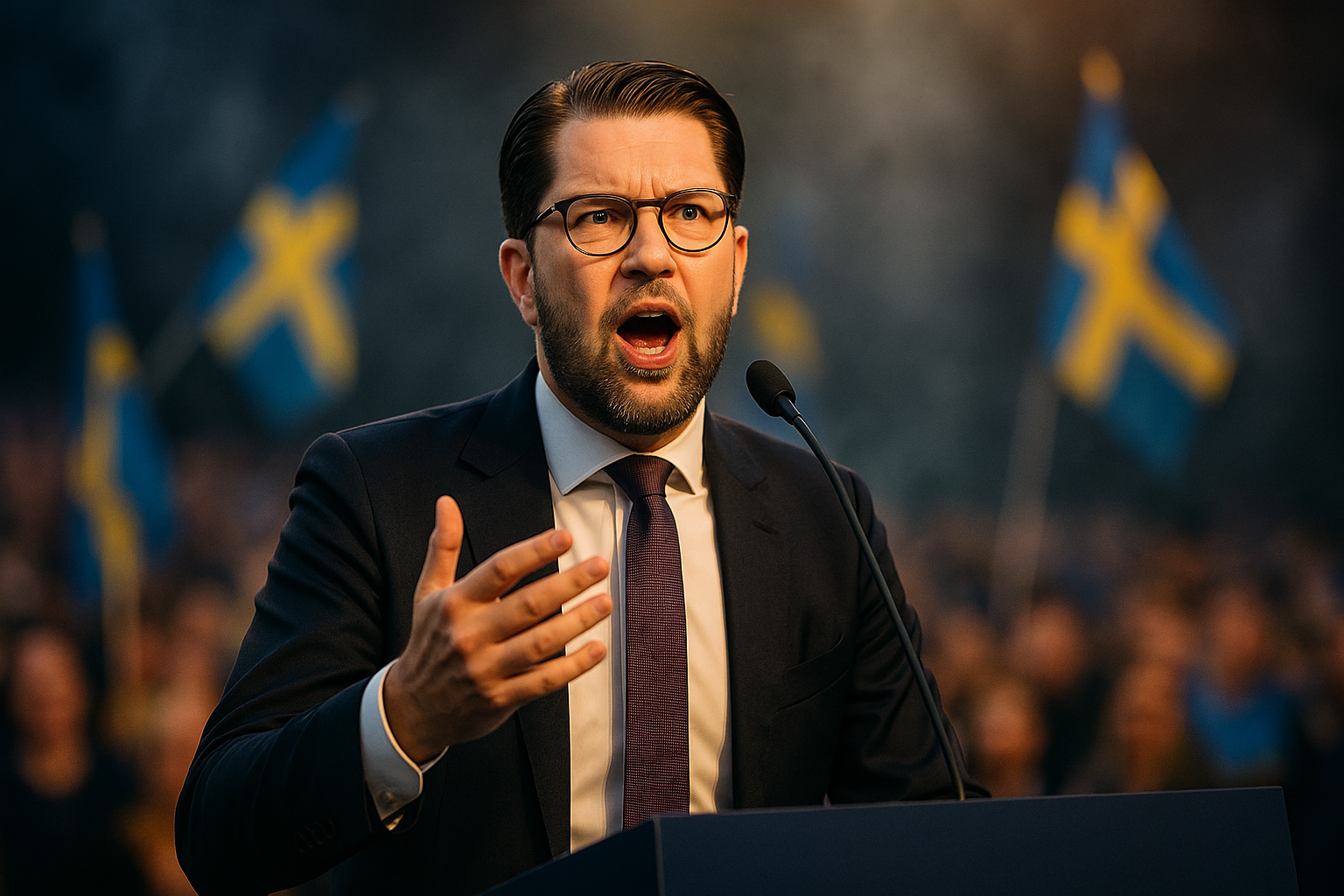
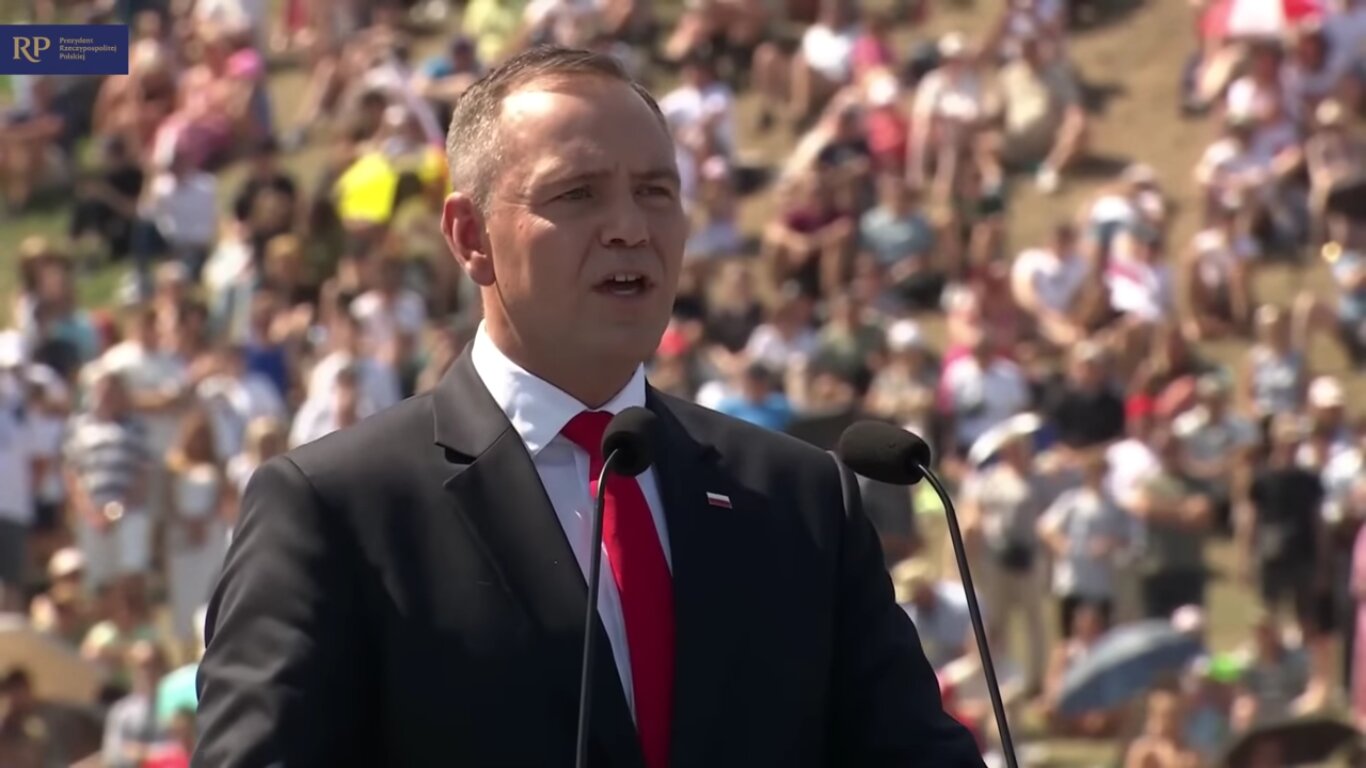
![A gdyby śmierci nie było? [o „Trzecim królestwie” Knausgårda]](https://krytykapolityczna.pl/wp-content/uploads/2025/07/Szablon-rozmiaru-obrazkow-na-strone-2.png)






